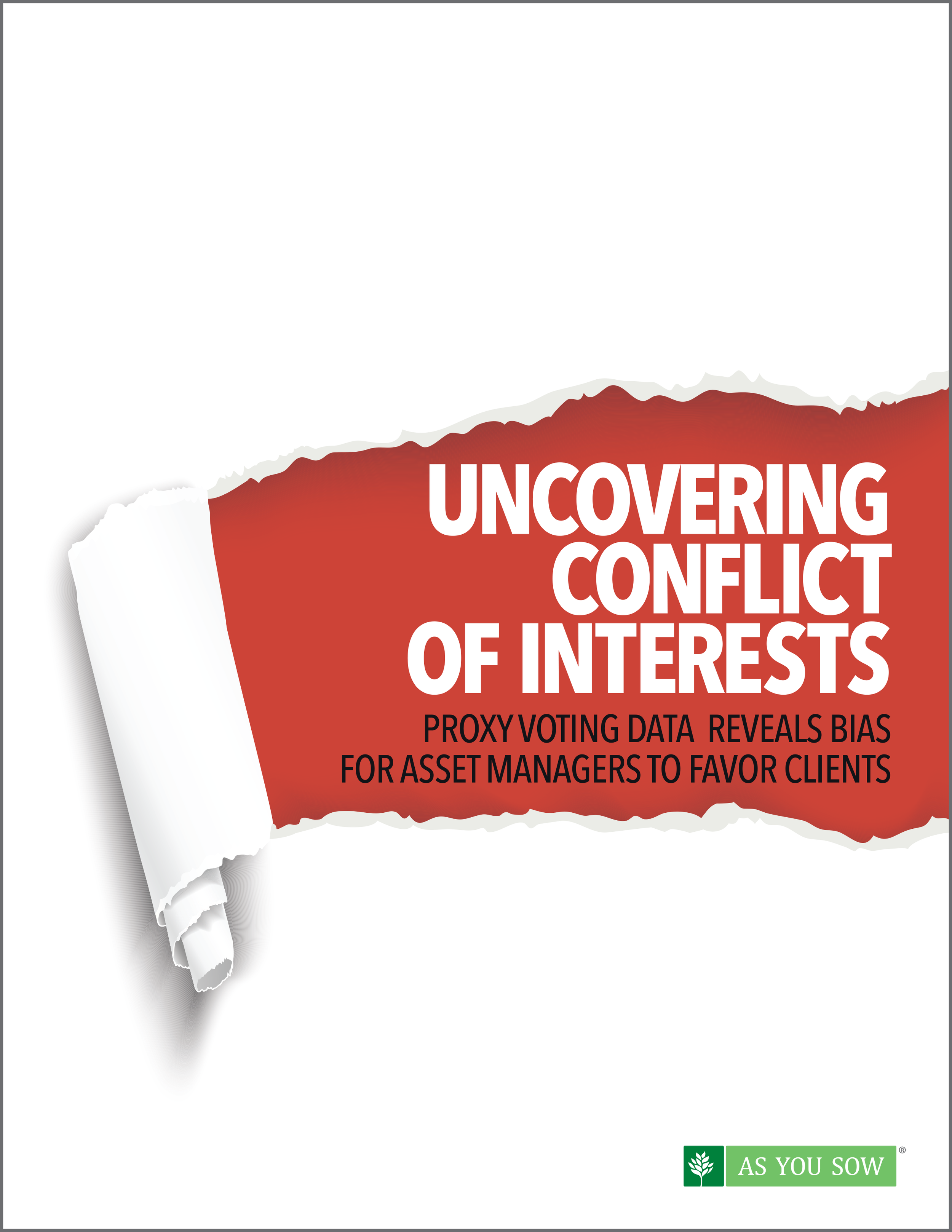This report compares millions of proxy voting records from January 2015 to June 2020 to commercial relationships, which uncovers the fact that all major fund managers considered — BlackRock, State Street, T. Rowe Price, and Vanguard — vote with management of their customers at a significantly higher rate compared to non-customers. Proxy voting biases favoring clients occurred at all four asset managers on management resolutions and occurred at three of the four asset managers; environmental, social, and governance (ESG) resolutions; and climate-related resolutions. The bottom line is that proxy voting by major asset managers favors their clients — a clear conflict of interest. More stringent reporting requirements and new technological and policy solutions should be implemented to remove proxy voting conflicts of interest and allow shareholder interests, as intended, to be the primary driver of proxy voting.
KEY TAKEAWAYS
From January 2015 through June 2020, BlackRock, State Street, T. Rowe Price, and Vanguard all voted in favor of management resolutions more often when they also had business ties for financial services.
BlackRock, State Street, and T. Rowe Price supported shareholder ESG proposals less often when they received compensation for financial services from January 2015 through June 2020.
BlackRock was three times more likely to vote with shareholders when no business ties were present on climate-related proposals from January 2015 through June 2020, voting with shareholders 9.5% with no relations versus 3.1% when commercial relations were present.
State Street had the highest level of bias on shareholder proposals across the same timeframe, voting with shareholders only 23% when business ties are present versus 37% when no relations were present — showing a 14% bias to favor companies providing compensation.
In 2019, the four managers analyzed received $489 million in compensation across a total of 932 corporations where they also voted proxies on behalf of shareholders — demonstrating conflict of interest for fund managers that vote proxies at corporate clients.
The number of years each asset manager favored management recommendations by resolution type is summarized in Figure 1, demonstrating the trend to favor commercial clients.

